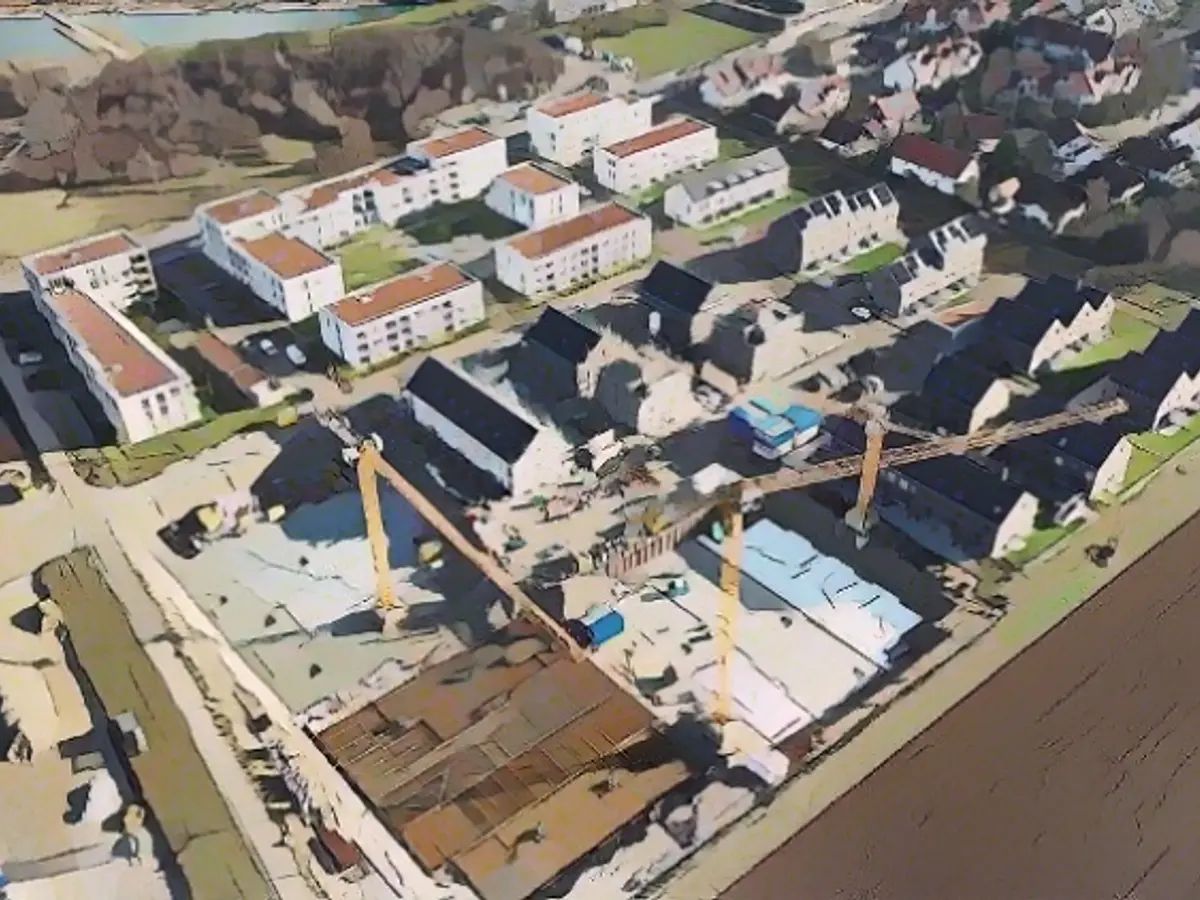Real estate prices fall for the first time since 2010
According to a study, prices for building plots, owner-occupied homes and condominiums are falling for the first time in more than 13 years. This is due to poorer financing conditions as a result of higher interest rates. The trend for rents is different to that for purchase prices.
According to a study, real estate prices in Germany fell for the first time since 2010 as the year drew to a close. Building plots, owner-occupied homes and condominiums in the more than 150 cities surveyed were on average two percent cheaper than in the previous year, according to a study by the German Institute for Economic Research (DIW). Large cities such as Berlin, Hamburg and Munich were particularly affected: Here, prices for building plots and owner-occupied homes fell by six to seven percent.
"There was a speculative price bubble in Germany until 2022, one of the biggest in the last 50 years," said Konstantin Kholodilin from the DIW's Macroeconomics department. "Prices have been falling ever since. The bubble has burst." According to the study, the main reason for the price corrections is that financing conditions have deteriorated as a result of higher interest rates. Construction and purchase projects have become significantly more expensive as a result. The volume of residential construction loans halved between March 2021 and September 2023.
In contrast to purchase prices, rents are continuing to rise according to the study: they are set to increase by an average of three percent in the coming year due to high population growth as a result of immigration and the slowdown in residential construction. "In addition, many households have given up their dream of owning their own home, as the price falls to date have not compensated for the increased financing costs," says DIW researcher Malte Rieth. "Many are forced to continue renting, which further increases the demand for rental apartments."
"There is a lack of urgently needed living space"
For the study, the DIW evaluated data from the real estate association IVD for the years 1996 to 2023. The calculations showed that, despite the recent corrections, property prices are significantly higher than at the start of the boom: According to the study, prices for building land have risen by 116 percent since 2010, while those for detached and terraced houses have doubled. During this period, rents have risen less sharply, by a total of 53 percent. A condominium in major cities currently costs as much as 27 annual rents, compared to 28 annual rents last year.
"There is an urgent shortage of housing. Politicians must act - also to reduce the social tensions that are building up," said Kholodilin. The authors of the study recommend streamlining building regulations and speeding up approval procedures in order to give housing construction a boost. In view of the wave of insolvencies in the private construction sector, state investment in construction should also be increased. "Under no circumstances should public construction activity fall victim to the current austerity measures," warned Rieth.
Read also:
- Why there is still no EU funding for green Saar steel
- 3 billion Saar Fund is unconstitutional
- Abrupt end to e-car subsidies
- The chemical industry has little confidence
Despite the fall in real estate prices across Germany, rents are expected to increase by an average of 3% in the coming year due to high population growth and a decrease in residential construction. Contrarily, financing conditions for real estate construction and purchase projects have worsened due to higher interest rates, leading to a decrease in demand for real estate and resulting in falling real estate prices.
Source: www.ntv.de








